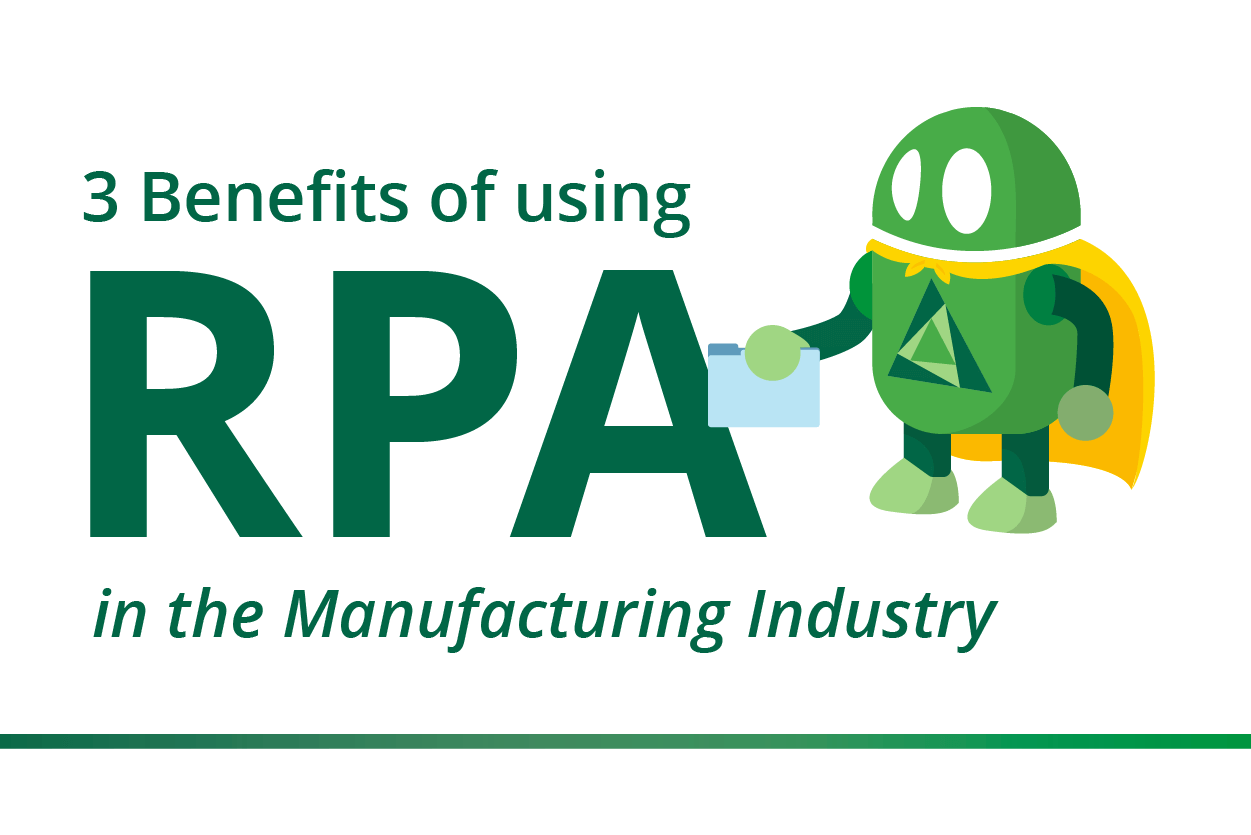We all know how important it is to gain efficiency, especially during these uncertain times.
Even before the coronavirus pandemic, we were seeing disruption in the manufacturing industry and now with everyone affected by our new way of being, the need to disrupt and adapt has become even more vital.
According to Deloitte, manufacturers made a continued investment in going digital especially when related to building agility, scalability, or mitigating risk in 2019. The coming months promise to be an ever-changing environment for manufacturers as they try to navigate our changing world.
Manufacturers, considered early adopters of automation, have used robots to perform tedious, repetitious tasks on the factory floor for decades. Now, however, they’re extending robotic process automation to the back-office as a way to gain efficiencies with those processes too.
So, what are the benefits of implementing RPA in the manufacturing industry?
Reduce Costs by Minimizing Human Errors
As manufacturers scale and grow, workloads for employees tend to grow as well. Leadership then must make the tough decision on whether to expand and hire more employees. Further complicating the issue, manufacturers are required to allow for social distancing to protect the health and safety of their employees. Adding new employees has new implications never felt before.
RPA offers a low-risk option that harnesses software to support existing employees. Repetitive tasks like processing transactions or reconciling invoices to payments can be handled by bots, freeing workers up to handle more critical tasks. Instead of hiring an additional employee, complete with salary, benefits, and other ancillary expenses, businesses can save money by paying a monthly fee to a solutions provider for software that will scale as needed. Robotics Process Review indicates that in addition to saving money, time is also saved.
More Compatible with Remote Workforce and Multiple Locations
Without automation, office teams at manufacturing firms tend to rely heavily on email, phone calls, or face-to-face communication to update each other on the progress of various tasks. This gets even more complicated when there are multiple manufacturing facilities and some of the workforce is working remotely. AP automation allows manufacturers to create portals where all employees can log in and see the information that pertains to them. If an invoice comes into a manufacturer’s headquarters in Ohio, for instance, that location can easily route it to corporate for payment or approvals.
Happier, more Fulfilled Employees
Work that primarily consists of tedious, repetitive tasks is boring and definitely not fulfilling. Workdays filled with boring, meaningless tasks create an environment where employees cruise along on autopilot. In fact, the Harvard Business Review reports that employees who aren’t engaged at work are more likely to be absent, stressed, or quit. Giving employees meaningful work and letting bots take care of the repetitive tasks ensures a happy, more satisfying work environment.

Robotic Process Automation Myths
The Benefits of Robotic Process Automation
An Overview of RPA – Robotic Process Automation
The Evolution of RPA in Accounting
How RPA is Changing Accounting
Robotic Process Automation: What RPA’s Rapid Growth in Popularity Means for Finance and Accounting
Are you ready to see how RPA can help you? Contact us at (651) 675-2600 or fill out our contact form and we’ll be in touch.


















